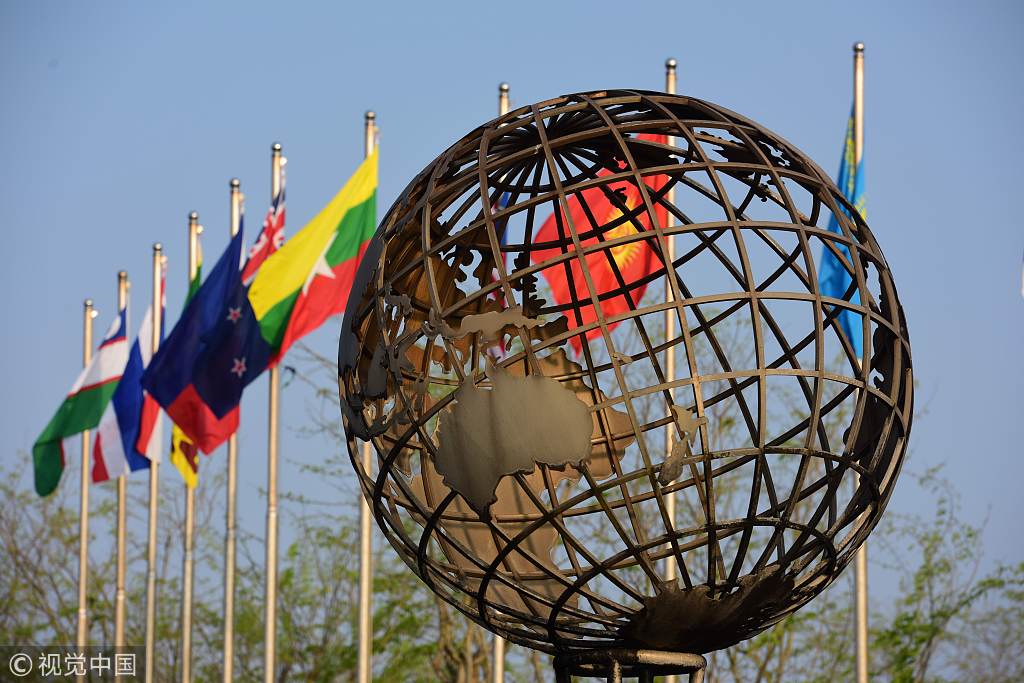A true community of equality and prosperity


The changing pattern of global economic development has given rise to new proposals of international relations and cooperation. From Davos to Boao, a community with a shared future for humankind is China's proposal as it develops into an influential global power amid historic changes. China's proposal has the potential to promote global development in a more equitable and fair manner.
According to President Xi Jinping's report to the 19th National Congress of the Communist Party of China, the Party seeks happiness for the Chinese people and the progress of all humankind. Thanks to the greater say it enjoys in international relations today for its decades of arduous endeavors and remarkable achievements for the betterment of humankind, China made the proposal to ensure that all countries jointly determine the future of the world and, together, they make international rules, manage world affairs, and share the fruits of global development.
To guarantee the principle is effective, all countries should negotiate on an equal footing, following the standards of sharing, win-win cooperation, mutual learning, and green development to build a peaceful, secure, prosperous, open, and beautiful world.
The advancement or regression of peace and development depends on whether or not all countries agree to build a community of a shared future. Henry Kissinger, former United States secretary of state, said that throughout history, peace could be maintained in a region but never worldwide. So, all countries should work together to create mutual demand and prosperity in order to counter the anti-globalization and protectionist voices in some economies and make the entire world a peaceful and secure place.
The US alone did not solve the development problem because the obstacles to development are different in developing countries and developed countries-developing countries need to fight poverty, while developed countries have to narrow the wealth gap.
But China found a new road to economic development, becoming a new driver of emerging markets, and helping increase the say of developing countries in global governance and rule-making. Chinese culture played a vital role in that development because it attaches high value to harmonious co-existence and sharing. China is sharing those experiences through the Belt and Road Initiative, which allows countries to negotiate as equals, and share resources to co-build infrastructure, and share the benefits of cooperation.
The rise of protectionism and populism in some economies poses a challenge to globalization, and could lead to confrontation. To nip this devastating nascent trend in the bud, China has been supporting openness and win-win cooperation, as it knows only through cooperation can humankind truly progress. China has been trying to promote stable development and mutual prosperity through cooperation projects, including those in building infrastructure facilities.
In contrast, the Cold-War mentality forces countries to join alliances or divide the international community into friends and foes, a concept that deserves to be consigned to the dustbin of history. The world needs a new order which is fairer, accords equal respect to all countries and promotes cooperation. These are times of peaceful and friendly communication and negotiation, not confrontation-of partnerships, not alliances.
The Belt and Road Initiative is aimed at building a community of shared future for humankind, President Xi said at the CPC in Dialogue with World Political Parties High-Level Meeting in November last year. This principle has been approved by the international community and included in a United Nations resolution, which speaks volumes of the importance of China's proposal.
The author is director of the Institute of International Affairs, Renmin University of China.


































